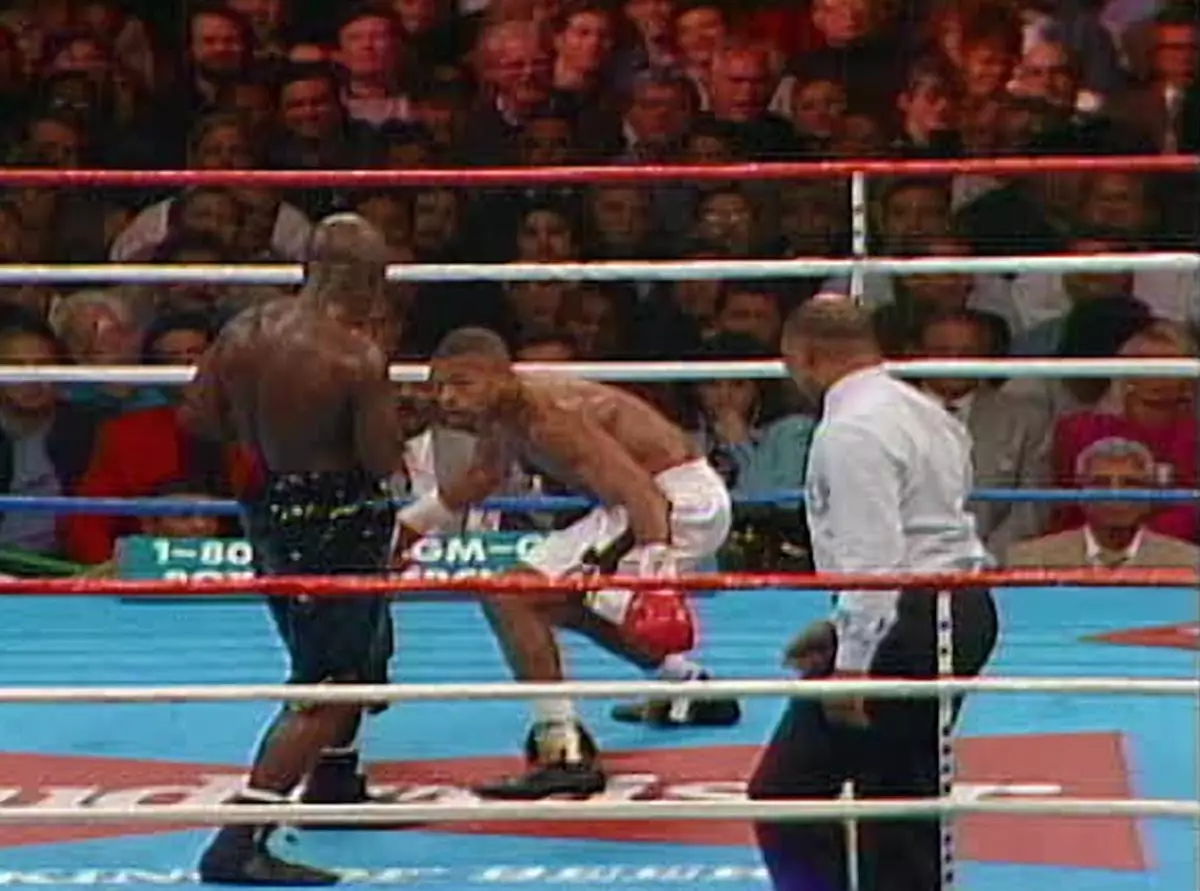The clash between Roy Jones Jr. and James Toney is often remembered as one of the pivotal moments in the history of boxing, showcasing the best of super middleweight talent during the early 1990s. The anticipation leading up to their fight at the MGM Grand in Las Vegas on November 5, 1994, was palpable. With both fighters proclaiming their dominance as pound-for-pound champions, the narrative was ripe for a classic showdown, one that would perhaps ignite a trilogy of fights. Fans expected an intense battle, with Toney’s trash-talking serving as the perfect backdrop for a fierce rivalry. However, what unfolded was an exhibition of skill from Jones that left many questioning the potential of Toney as he fell short of expectations.
Two Titans Enter the Ring
At the time of the fight, Roy Jones Jr. was perched on a remarkable record of 26 wins with 23 knockouts, having established himself as a formidable force in boxing. Meanwhile, Toney, boasting an unblemished record of 44-0-2 and reigning as the IBF champion, carried significant weight as the contender. Their contrasting styles set the stage for what many believed would be a thrilling contest. However, as the match commenced, it became evident that Jones, at the age of 25, was operating at a peak level that Toney could not contend with. Jones’s handspeed and ring intelligence were nothing short of extraordinary, highlighting a level of adaptability that would define the match.
What transpired in the ring was disappointing to those hoping for an even contest. Instead of witnessing a competitive back-and-forth, fans saw Jones display a masterclass of boxing, effectively outclassing Toney in every conceivable aspect. Toney’s struggle to make the weight limit added another layer to his vulnerability, hinting at his physical unpreparedness that would ultimately contribute to his defeat. Jones managed to score a flash knockdown in the third round, setting the tone for what would continue to be a landslide decision.
Despite the hype surrounding the fight, the reality was somewhat mundane; Toney struggled to gain traction, while Jones executed his game plan flawlessly. To the spectators, the bout felt lackluster as Toney seemed unable to mount any significant offense, resulting in a match that was compelling more for Jones’s exceptional performance than for any drama or tension.
When the final bell rang, the scores reflected the dominance displayed throughout the match. A 119-108 score served as the most accurate portrayal of the fight, with varied widths in the other judges’ scores still favoring Jones overwhelmingly. Toney’s visibly frustrated demeanor indicated a disappointment that extended beyond merely losing; it was a profound acknowledgment of missed opportunities and the overwhelming realization that he had fallen short on the biggest stage of his career.
The aftermath of their encounter left Toney in a state of discontent, perpetually yearning for a rematch that never materialized. His inability to prepare adequately for a fight of this magnitude cast a shadow over his legacy, as fans speculated on what might have been had he approached the bout in optimal condition.
Legacies Defined by a Singular Encounter
The match between Jones and Toney served to solidify both fighters in the annals of boxing history, albeit in contrasting fashions. While Jones continued on a path of unbeaten glory until a disqualification in 1997, Toney struggled to regain the momentum that had once defined him. Their singular meeting became a point of reference for future generations discussing boxing’s past; the skilled artistry of Jones and Toney’s shortcomings became constants in the conversation surrounding their careers.
The fight that was anticipated as a titanic clash instead turned into a showcase for Roy Jones Jr.’s unmistakable prowess. It serves as a reminder of how pivotal moments in sports can shape legacies, often revealing the stark realities of preparation, adaptability, and skill in the unforgiving arena of professional boxing.


Leave a Reply